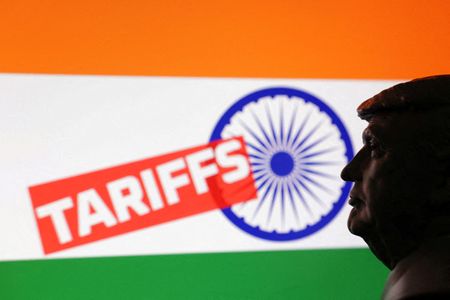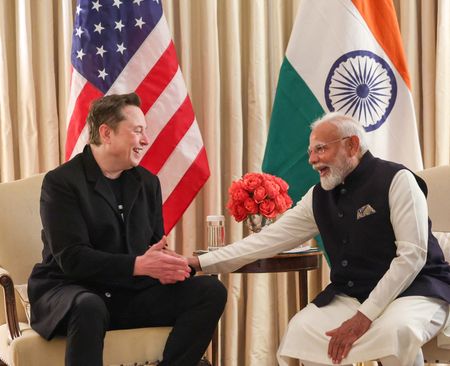By Bharath Rajeswaran and Indranil Sarkar
(Reuters) -Foreign investors extended their longest buying spree since July 2023 on Monday, fuelled by U.S. trade deal hopes, cheap corporate valuations, and India’s relative resilience to global tensions, helping markets shrug off concerns over India-Pakistan frictions.
Foreign portfolio investors (FPIs) pumped about $4.11 billion into Indian equities over the last nine sessions, lifting the benchmark Nifty 50 index by 6.6% for the period.
The main reason for FPIs coming back into Indian markets is that the U.S. and China are more vulnerable to a global trade war than India, which is projected to still remain the fastest growing large economy in fiscal year 2026, said G Chokkalingam, founder and head of research at Equinomics Research.
Markets have also shrugged off fears of an escalation in tensions between India and Pakistan after a deadly militant attack in Kashmir last week, which initially sapped risk sentiment.
Analysts also said that expectations of a U.S.-India bilateral trade deal could attract further portfolio inflows the near term.
U.S. Treasury Secretary Scott Bessent said on Monday that many top trading partners made “very good” tariff proposals, but one of the first deals to be signed would likely be with India, adding that a deal could be sealed as early as this week.
Foreign interest in Indian shares is also being driven by attractive large-cap valuations and strong earnings from heavyweights like Reliance Industries, alongside a tactical shift in flows between China, India, and the U.S., said Kranthi Bathini, director of equity strategy at Wealthmills Securities.
The recent foreign buying in Indian shares follows sustained outflows worth $25.3 billion between October 2024 and March 2025 due to high valuations, moderating earnings, growth and global trade uncertainty.
As of Monday’s close, the Nifty traded 7.4% below all-time high levels hit on September 27, 2024.
($1 = 85.0940 Indian rupees)
(Reporting by Bharath Rajeswaran and Indranil Sarkar in Bengaluru; Editing by Sonia Cheema)











